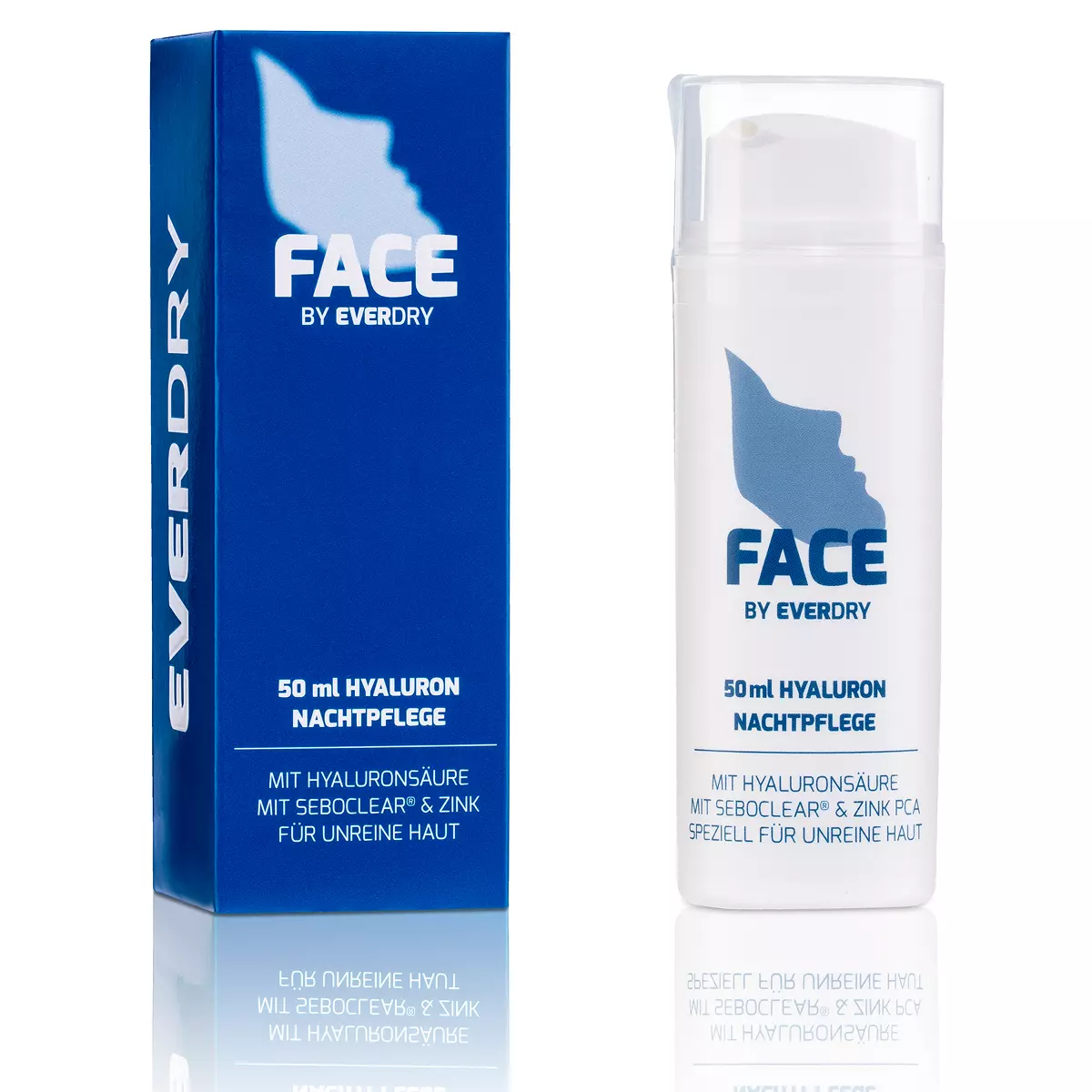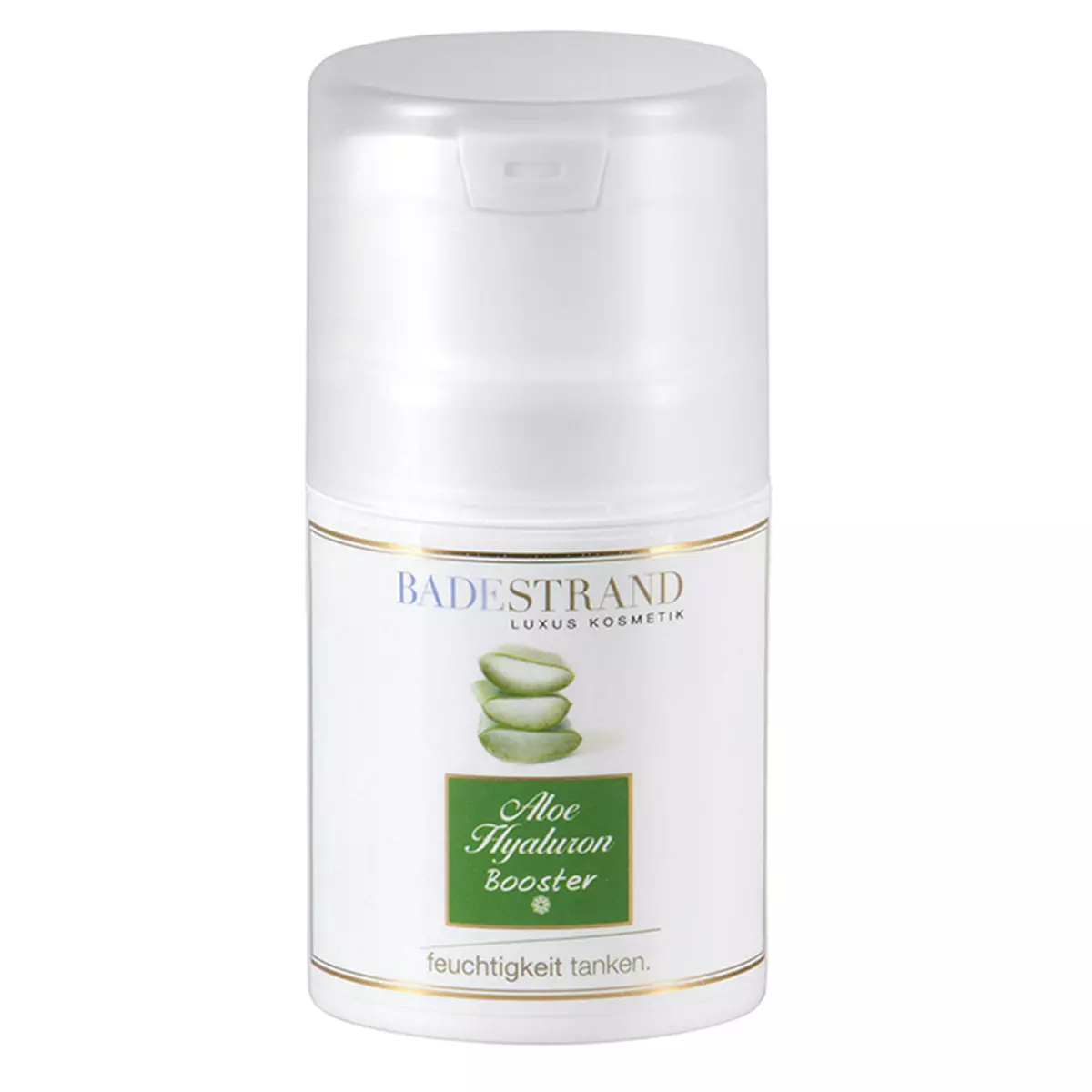Filter products

Content: 0.05 Liter (€298.00 / 1 Liter)

Content: 0.05 Liter (€258.00 / 1 Liter)
Hyaluronic Acid - Anti-Ageing
When it comes to anti-ageing products, you can't really start too early. According to expert opinion, skin progressively loses its elasticity from the mid-20s onwards, which is why it's wise to take precautions with anti-ageing creams in good time. The sooner you actively address wrinkle formation, the more you support anti-ageing processes. This article will tell you everything you need to know about anti-ageing, your skin, and those unwelcome fine lines.
What does anti-ageing mean?
Anti-ageing, or age prevention, refers to measures that delay the biological ageing process in humans for as long as possible, thereby enhancing quality of life and extending life expectancy. This includes not only cosmetic efforts but also medical, biochemical, and nutritional methods. In the cosmetics industry, however, the term anti-ageing primarily refers to slowing down skin ageing with the help of anti-ageing creams. But since there can be significant differences between individual anti-ageing creams, it’s worth taking a closer look at their active ingredients and components.
How do wrinkles form?
The market for anti-ageing products is incredibly vast. This extensive variety is reflected, among other things, in the diverse ingredients used, although some active ingredients, such as hyaluronic acid, are more common and thus seem to play a more significant role. However, to truly assess the precise effect and importance of an ingredient, one must first understand the skin's ageing process and, consequently, how wrinkles develop. Like any other organ, skin also ages. Here, a distinction is made between intrinsic and extrinsic skin ageing. Intrinsic skin ageing refers to the genetically determined, natural process: a young body renews its cells approximately every four weeks, which also regenerates the skin repeatedly. However, cell division slows down with age, meaning skin renewal eventually takes twice as long. This leads, for example, to a continuous decrease in skin elasticity due to the gradual loss of collagen and elastin. Hyaluronic acid, which surrounds human skin (specifically the dermis), also loses efficiency with increasing age: it can absorb and store less and less water, causing the skin to become drier and less firm. In addition to other ageing processes, moisture loss, slowed cell renewal, and reduced elasticity contribute to an aged complexion. However, the influence of extrinsic skin ageing should not be underestimated: external factors such as cigarette or alcohol consumption, UV radiation, or even facial expressions are responsible for the formation of comparatively deeper wrinkles. So, if you want to slow down the skin's ageing process, you should also pay attention to external conditions. Anti-ageing creams are primarily designed to slow down the natural ageing process. But through various anti-ageing active ingredients that protect the skin, the influence of extrinsic skin ageing is also moderately mitigated. However, this protection is not comparable to a balanced, healthy lifestyle.
How do anti-ageing creams work?
Skin ageing is determined by a complex biochemical process involving various mechanisms. The question, which is also at the heart of anti-ageing research, is therefore how to achieve a more youthful appearance. Due to the complexity of the natural ageing process, most anti-ageing creams are now highly comprehensive products that combine various ingredients to counteract skin ageing on multiple levels. One of the best-known active ingredients in anti-ageing creams, for example, is hyaluronic acid.
The foundation for a good anti-ageing cream
The demands on an anti-ageing cream or a skincare product in general are to strengthen the skin barrier, ensuring the skin is protected and adequately moisturised. Since these are the two main factors for more mature skin, important aspects of an anti-ageing product are already covered. High skin compatibility is best achieved with a cream base that is as non-irritating as possible. This is why natural moisturisers and fats, which are very similar to the skin's own, are often used in anti-ageing creams. For instance, glycerine, shea butter, or squalane are frequently found in anti-ageing creams. Silicones, mineral oils, or alcohol can irritate the skin, which is why these ingredients are often omitted from anti-ageing creams. For sensitive or stressed skin,


